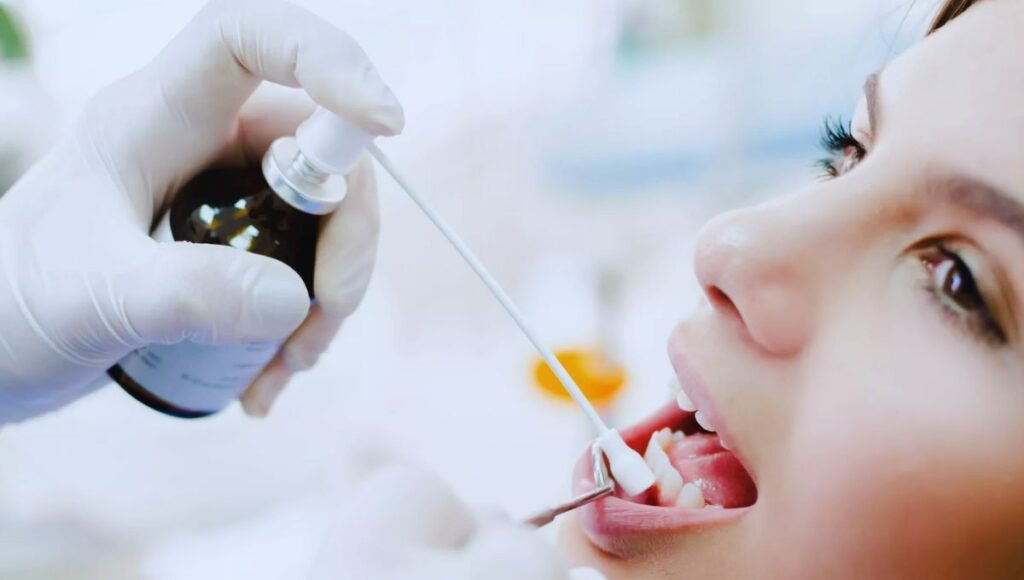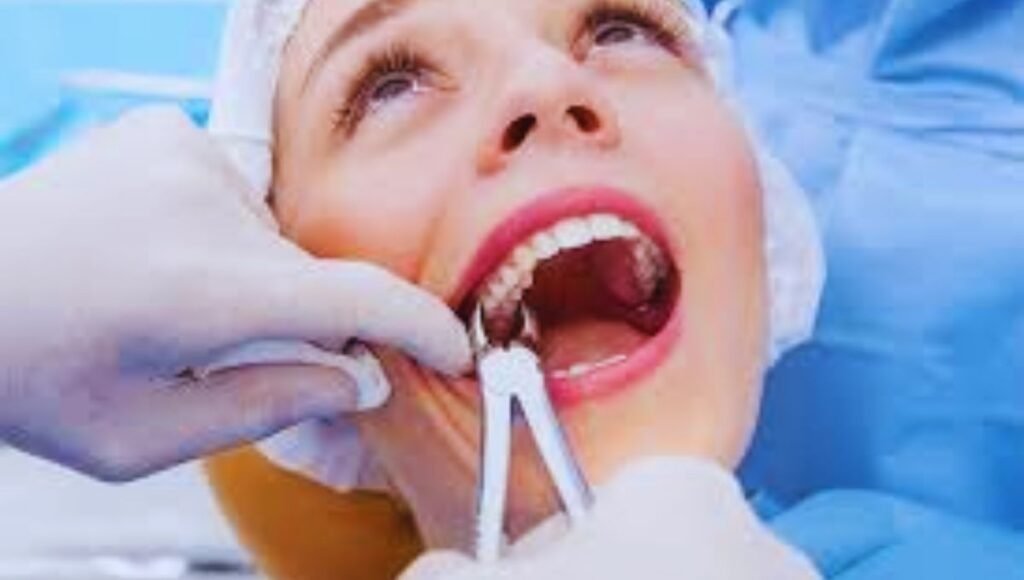Can I Eat Before Tooth Extraction Local Anesthesia?
You might wonder if it’s safe to eat before undergoing a tooth extraction with local anesthesia. While the traditional advice often leans towards fasting, eating a light meal a few hours beforehand could actually be beneficial. This practice helps maintain your blood sugar levels, potentially easing any discomfort during the procedure.
It’s important, however, to choose the right type of food—something light and easy to digest. But how exactly does this affect your body’s response to the anesthesia, and what are the best choices to ensure a smooth procedure? Let’s explore how your pre-procedure meal could impact the overall experience.
Understanding Local Anesthesia

Local anesthesia numbs a specific part of your body to prevent pain during medical procedures. This form of anesthesia is highly effective for dental treatments, such as tooth extractions. One of its main benefits is that it allows you to remain conscious and responsive without experiencing discomfort in the targeted area.
The numbing process begins when your dentist injects the anesthesia directly into the gum or inner cheek near the tooth to be extracted. The active ingredients in local anesthetics, such as lidocaine or articaine, block the nerve signals in that specific area. This results in a temporary loss of sensation, ensuring that you don’t feel pain during the procedure.
Local anesthesia is advantageous because it acts quickly and its effects are confined to the site of the injection, reducing potential side effects compared to general anesthesia. Recovery from local anesthesia is generally swift, and you can resume your day-to-day activities shortly after your dental procedure, without the grogginess often associated with other anesthesia types.
Understanding these aspects will help you prepare mentally for your tooth extraction and appreciate the safety and effectiveness of the numbing process and its beneficial effects on managing procedural pain.
Pre-Procedure Eating Guidelines
You may wonder if it’s safe to eat before a tooth extraction under local anesthesia. It’s essential to follow specific fasting recommendations to guarantee the procedure goes smoothly. Typically, you don’t need to fast completely, as local anesthesia doesn’t generally affect your digestive system like general anesthesia might. However, it’s advisable to eat a light meal a few hours before your appointment. This can help you avoid discomfort and maintain stable blood sugar levels.
Choose foods that are easy to digest and not too heavy. Avoid greasy, acidic, or excessively spicy foods that could upset your stomach. Eating a light meal is particularly important because it can prevent nausea post-procedure, which is beneficial when the local anesthesia wears off.
Regarding post-procedure snacks, opt for soft, nutritious options that don’t require much chewing. Foods like yogurt, applesauce, or smoothies are excellent choices. These snacks aren’t only gentle on your extraction site but also help in maintaining adequate nutrition as you recover.
The Importance of Hydration
Maintaining proper hydration is crucial before and after your tooth extraction to guarantee optimal healing and comfort. Adequate water intake helps ensure that your body is ready for the stress of surgery and aids in a smoother recovery process.
Prior to the procedure, hydration benefits your body by maintaining ideal blood volume and pressure, which can contribute to more effective local anesthesia and reduced chances of nausea.
It’s important to drink plenty of water the day before your surgery. However, follow your dentist’s specific instructions regarding any restrictions on water intake immediately before the procedure.
After your extraction, focusing on water intake is equally vital. Adequate hydration aids in post-extraction recovery by helping to cleanse the mouth naturally, reducing the risk of infection and promoting the healing of soft tissues.
Ensure you’re consuming enough fluids; aim for clear, caffeine-free liquids if water becomes monotonous. Avoid using straws as the suction can dislodge the blood clot crucial for healing.
Foods to Avoid Before Surgery
Before your tooth extraction, it’s important to avoid certain foods that can complicate the surgery or your recovery. During the pre-surgical fasting period, understanding what not to consume is essential. You should primarily steer clear of any hard, crunchy, or sticky foods. These can irritate your gums or become lodged in places that might increase the risk of infection post-surgery.
Additionally, you’ll want to avoid spicy and acidic foods. These can aggravate your digestive system and mucous membranes, which might cause excessive discomfort or inflammation, complicating the anesthesia process. It’s also advisable to skip any large meals right before your procedure. Eating heavy can lead to nausea or discomfort, which is particularly undesirable if you’re feeling anxious about the surgery.
As for beverages, eliminate any alcohol consumption for at least 24 hours before your extraction. Alcohol can thin your blood, leading to increased bleeding during and after the procedure. Instead, focus on staying hydrated with clear liquids up until a few hours before your surgery, as per your dentist’s specific instructions.
Tips for a Smooth Recovery

To warrant a smooth recovery after your tooth extraction, follow these specific guidelines diligently. Effective post-operative care is important in preventing complications and guaranteeing a swift and comfortable healing process.
Here’s how you can manage your recovery efficiently:
- Apply Ice Packs: Reduce swelling by applying ice packs to the affected area. Do this for 10 minutes on, then 10 minutes off, during the first 24 hours.
- Rest Adequately: Keep your head elevated and rest. Avoid any strenuous activities for at least 48 to 72 hours to minimize bleeding and swelling.
- Manage Pain: Take pain management seriously. Use prescribed painkillers as directed by your dentist or oral surgeon. Over-the-counter options like ibuprofen can also be effective, but consult your healthcare provider first.
- Follow Dietary Guidelines: Stick to soft, cool foods like yogurt, pudding, and applesauce for the first few days. Avoid hot liquids and chewy, hard, or spicy foods that could irritate the extraction site.
- Oral Hygiene: Keep your mouth clean, but be gentle. Rinse with salt water or a prescribed oral rinse to reduce the risk of infection, but don’t brush the extraction site directly until it has healed significantly.
Adhering to these tips will help ensure a trouble-free recovery.
Frequently Asked Questions
Can Anxiety Medications Affect Local Anesthesia During Tooth Extraction?
Yes, anxiety medications can affect local anesthesia during tooth extraction due to potential medication interactions. It’s important to manage anxiety effectively to guarantee the anesthesia works properly during dental procedures.
How Does Smoking Impact Anesthesia Effectiveness?
Smoking can reduce anesthesia effectiveness, impacting your body’s response during procedures. It’s vital to adapt your diet and smoking habits to optimize anesthesia efficacy and guarantee a smooth surgical experience.
Are There Any Age-Specific Considerations for Local Anesthesia?
Yes, age-specific considerations for local anesthesia exist. Pediatric patients require careful dosing adjustments, while elderly patients may need consideration for comorbidities and medication interactions to guarantee safe and effective anesthesia application.
Can I Use Herbal Supplements Before a Tooth Extraction?
You should avoid herbal supplements before a tooth extraction due to potential interactions and bleeding risks. Discuss any supplements you’re taking with your dentist to guarantee adherence to necessary dietary restrictions.
Should I Inform My Dentist About Recent Illnesses?
Yes, you should inform your dentist about recent illnesses as they can affect medication interactions and diet restrictions during your treatment, ensuring safe and effective management of your tooth extraction under local anesthesia.
Conclusion
Before your tooth extraction under local anesthesia, it’s important to choose your pre-procedure meal wisely. Stick to light, easy-to-digest foods and stay well-hydrated, but avoid greasy, spicy, or acidic foods to minimize discomfort.
Following these guidelines will help stabilize your blood sugar and guarantee a smoother experience. Remember, proper preparation can greatly impact your recovery process, so take these tips seriously to promote healing and reduce potential complications.
Good luck!